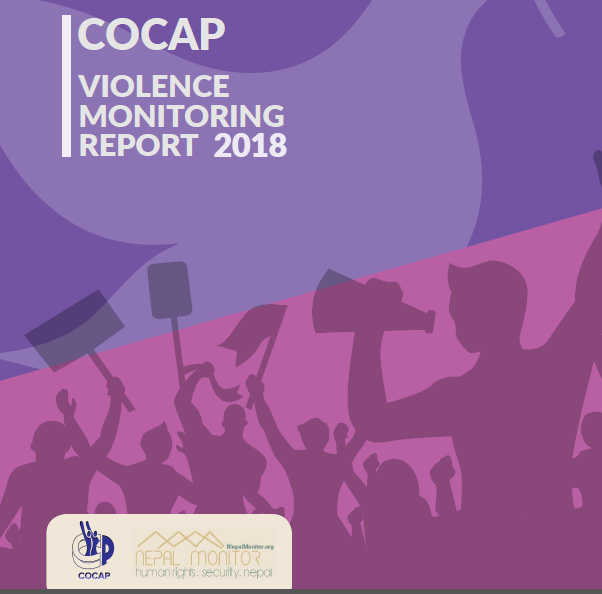Analysis
Violence Monitoring Report 2018
2019-05-10

2018 was a year of significant changes and consolidations of power in Nepal but one that left significant
question marks over the progress on key measures of justice and equality. Parliamentary elections in late
2017 led to a comfortable majority for the new ‘Left Alliance’ platform involving both the CPN-Maoist and
CPN-UML parties. With a strong majority government in place under the leadership of Prime Minister
KP Oli, expectations were raised going into 2018 for effective and firm governance and progress on key
social and economic issues with national prosperity a key declared priority. The bond between the parties
constituting the majority was concretized in May 2018 when the two parties officially merged to form the
new Communist Party of Nepal.
A wave of legislative change occurred when the Nepalese parliament passed new civic and criminal codes
which came into effect in August 2018. These replaced the existing General Code, which was 55 years old.
To operationalize these codes, over 100 new laws were passed within the same parliamentary period. A
great deal of criticism was levelled at the new codes, with specific concerns raised about the implications
for freedom of expression and religion. This concern was raised in the context of a number of restrictions
on protest that were implemented earlier in the year, in addition to individual cases of arrest of individuals,
journalists and other civilians on grounds of ‘character assassination’ of prominent public figures.
This surge of legislative activity from a strong central government occurred alongside the ongoing
reorganization of local governance following the commitment to federalisation enshrined in the 2015
constitution and furthered by the local elections of 2017. Despite six of the seven provinces having
provincial administrations led by the same Nepali Communist Party, thus far coordination between the
centre and the provinces has been inconsistent. As the central government seems generally committed
to consolidating and strengthening central executive power, this inconsistency may reflect reservations
about the implications of the decentralization of responsibility in key policy areas such as security.
Another unresolved issue affecting Nepal is that of transitional justice. There are numerous delays
and blocks to an inclusive and just response to crimes committed during the civil conflict in Nepal. This
situation continues to affect the relationship between civil society and government and between civil
society actors taking different positions on the best path forward. Proposed changes to the status of the
Truth and Reconciliation Commission (TRC) and Commission for Investigation on Enforced Disappeared
Persons (CIEDP) will have significant implications for their work and ultimately for the situation of
survivors of violence and families of disappeared people among other significantly marginalized groups.
At the tail end of June 2018, the government published a Draft Bill to amend the status of the
Commission on Investigation of Disappeared Persons, Truth and Reconciliation. Amnesty International,
the International Commission of Jurists and Trial International produced a joint statement of comments
on the draft which highlighted concerns about a lack of meaningful consultation, ignoring of victims
and lack of clear political will toward accountability, even that satisfies the existing rulings of the Nepali
Supreme Court.
The case of Nirmala Panta, who was raped and murdered in July 2018, became an emblematic mobilizing
point for critics of the existing national level mechanisms for justice and accountability, highlighting
the struggles of those affected by violence and the challenges of a culture of impunity for powerful
perpetrators of violence. The key recommendations of a National Human Rights Commission (NHRC)
report (which at the time of writing has yet to be published in full) highlighted not only serious failings
but direct misconduct in the police investigation into this case.

